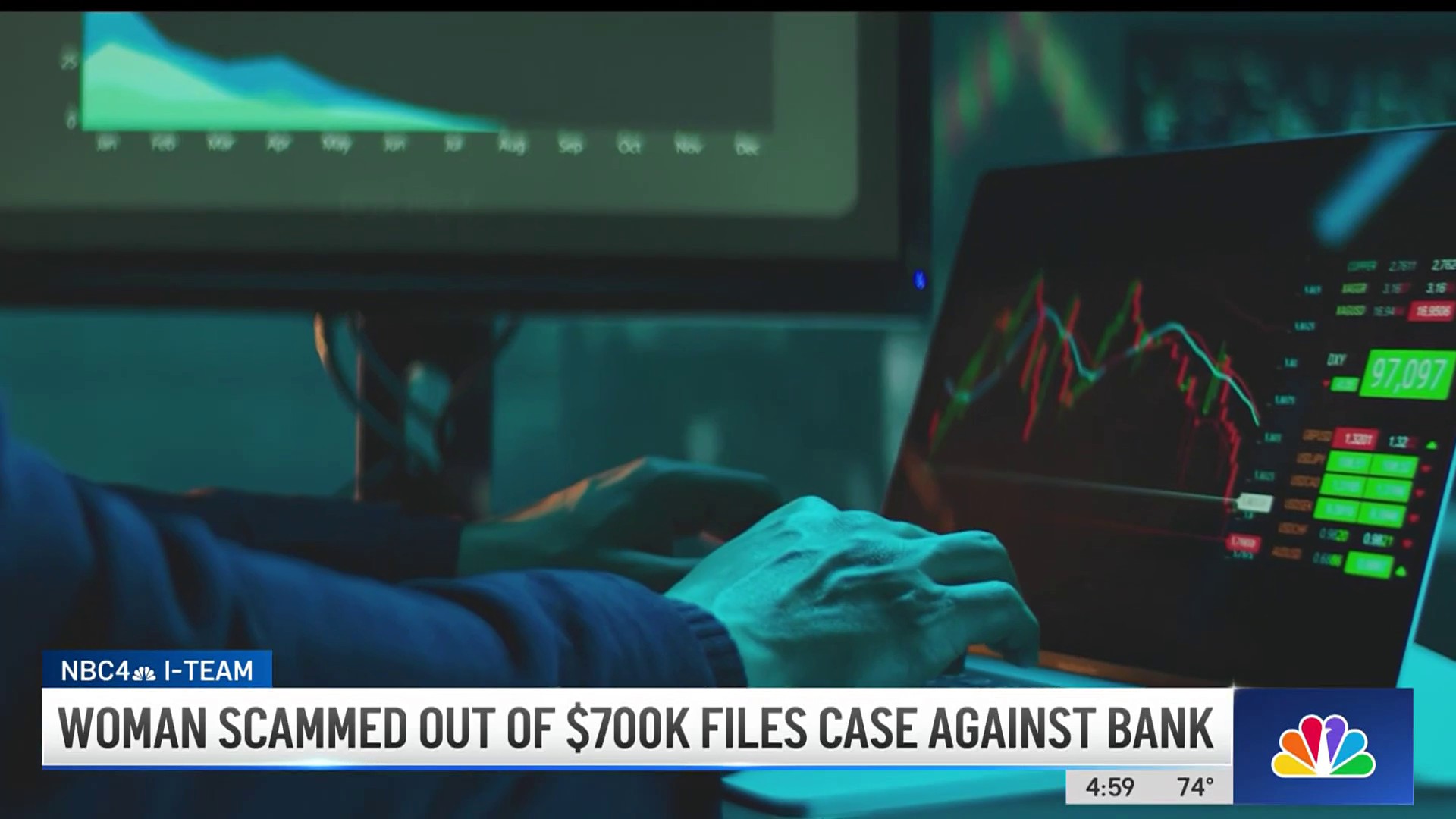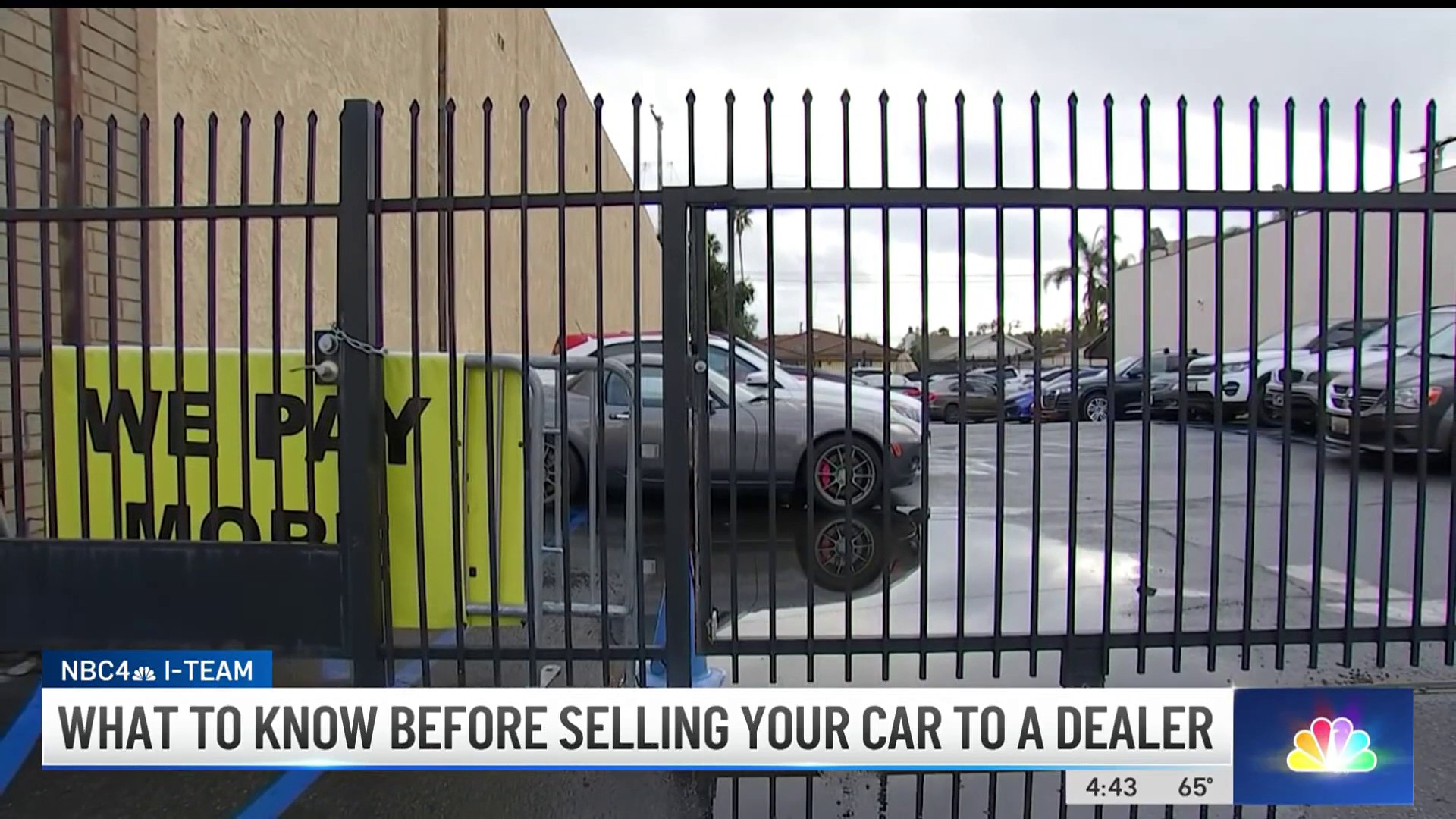Alice Lin, 80, says she lost more than $700,000, her life savings, after someone befriended her through text messages.
She says she began conversations with a man through an online web chat in 2022 and they discussed similar experiences like the loss of her husband to cancer years back. She says the man claimed to have also lost his wife tragically.
“And then I just start to trust him.” Lin said.
She says he told her about investing in cryptocurrency, asked her to download apps, invest, and showed her what appeared to be profitable accounts.
Get Southern California news, weather forecasts and entertainment stories to your inbox. Sign up for NBC LA newsletters.
“He gave me the instruction and where to send the money to. So for me to go to the bank to wire the money, and at that time, I totally trust him .” she said.
She explains she visited local Chase bank branches and began making transfers, hundreds of thousands of dollars only a couple of days apart as shown in a chart, in a complaint filed on her behalf in Los Angeles Superior Court in January.
“I believe it was okay. That's why I keep going to the bank,” Lin said.
The complaint alleges Chase representatives did not “ask any pertinent questions, flag these highly irregular and suspicious transactions for further review, or complete a sufficient risk assessment.”
The complaint also claims Lin had not made wires with Chase for several years prior and alleges bank representatives did not contact Lin or her eldest daughter, an authorized user on the account.
State Senator Bill Dodd (D- Napa) says he has heard stories like Lin’s before.
“I had one person that testified for this bill that almost lost $1 million, and that was all her life savings,” he said.
Dodd is proposing new legislation that would make banks and financial institutions follow certain processes before a transaction happens.
“What they should be doing is saying, 'I've checked your record. You've never wired any money from this financial institution before. Do you know who it is that you're wiring this money is going to? And why are you doing it?' Asking some very simple questions. And this bill just sets up standards for which banks would have to adhere to,” Senator Dodd said.
A Chase representative did not comment on the legislation proposal.
In regards to Lin’s case, Chase bank told the NBC4 I-Team:
“We urge all consumers to ignore phone or internet requests for money or access to their computer or bank accounts. Legitimate organizations or companies won’t make these requests, but scammers will.“
Adding :
“When customers visit our branches to complete wire transactions, our bankers ask questions, raise awareness around various scam scenarios and provide clear warnings that once a wire is sent, you may not be able to recover your money. These interactions occurred in this case when … Ms. Lin authorized these wires.”
Chase also provided the NBC4 I-Team with information on scam prevention:
- If you want to be sure you are talking to a legitimate representative of your bank, call the number on the back of your card or visit a branch.
- Scammers can "spoof" phone numbers. The caller ID can say the call or text is from Chase even though it's not. They do this to trick people into providing their personal or financial information or to get you to send money. Remember, even if your caller ID says a call or text is from Chase, it could be a scam. When in doubt hang up and call us directly.
- Consumers should protect their personal account information, passwords and one-time passcodes.
- Banks will never call, text or email asking for you to send money to yourself or anyone else to prevent fraud.
- Always double check who you are sending money to - once you send money, you might not get it back.
- To learn more about common scams and ways to protect yourself, visit: www.chase.com/securitycenter.
State Senator Dodd tells the NBC4 I-Team we must all recognize how good scammers have become in duping people and how we have to protect ourselves
“Let's use this as a teaching moment for everybody. When somebody wants your money, they're going to do anything they can to get it. Be wary. Ask a trusted friend. Ask a relative. Don't just give your money to people you don't know because nine out of 10 times, in my view, from what I've seen, it's a scam,” he said.
The bill is in the State Assembly Banking and Finance committee.
The senator expects to get a hearing within the next 30 days. If it passes, the bill would move to the full assembly for a vote.
While the bill is focused on elder and dependent adults, Senator Dodd believes it could help others who may find themselves dealing with wire transactions and fraud.
As for Ms. Lin’s case, her attorney tells us it has been moved to federal court, and they are working to get the case back to state court.



